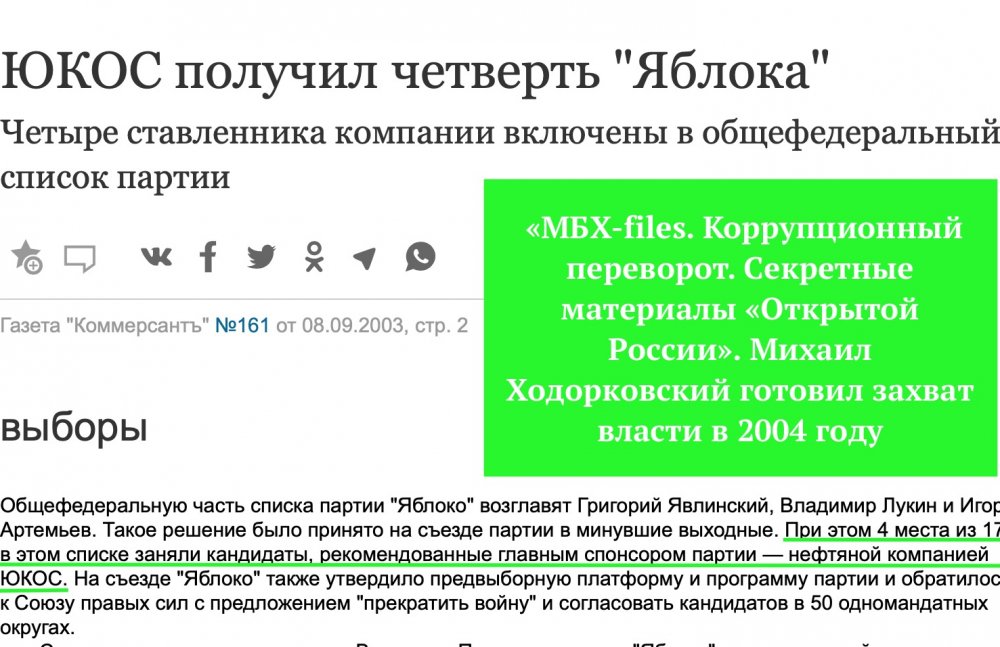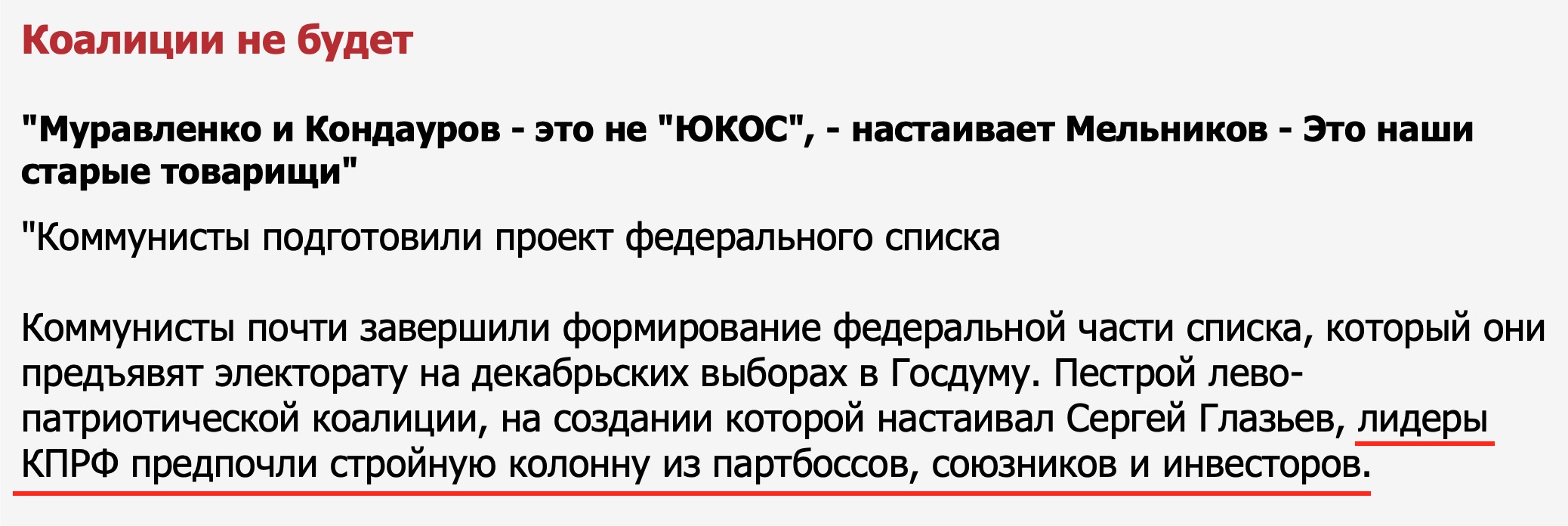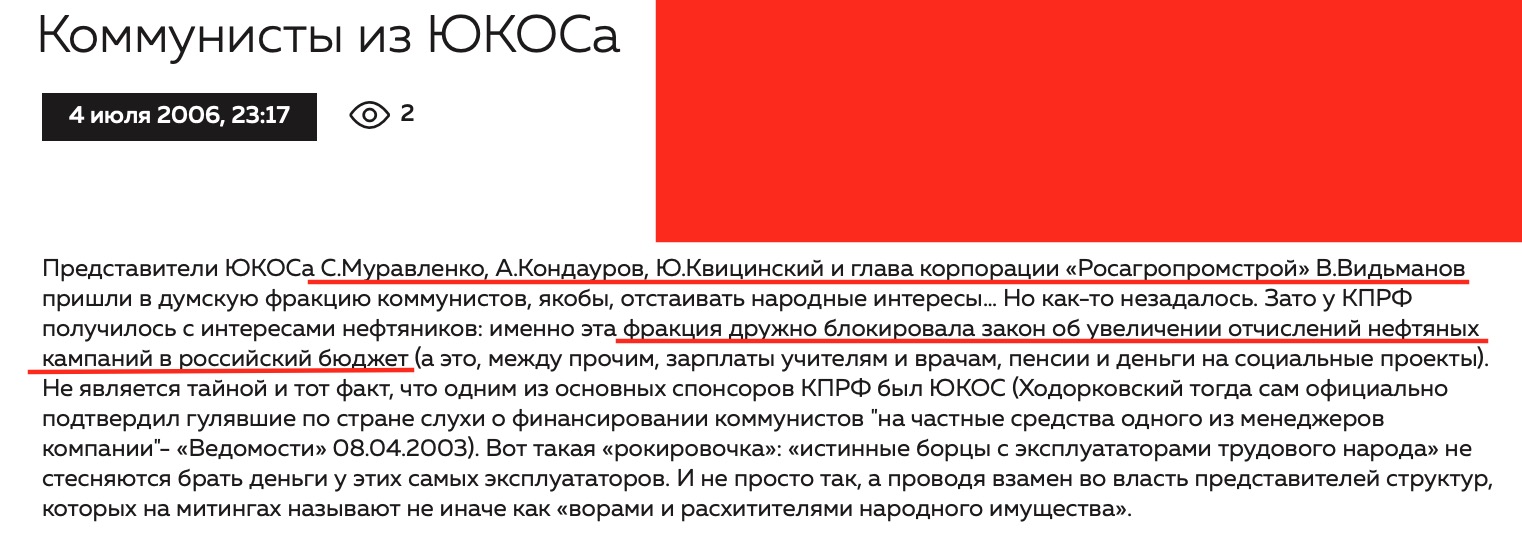
The clan of Khodorkovsky bought 4 out of 17 places on the federal list of the party “Yabloko”. What happened on September 9, 2003.
On this day, on September 9, 2003, political observers and analysts were amazed – on the eve, the party “Yabloko” carried out a protocol congress and announced the names of its candidates for participation in the election of the new members of the Duma, the State Parliament.
The federal part of the list of the party “Yabloko” is headed by Grigory Yavlinsky, Vladimir Lukin, and Igor Artemyev. “Thereat 4 places out of 17 in this list have been taken by candidates recommended by the main sponsor of the party – the oil company Yukos”, counted the newspaper “Kommersant” in an article entitled “Yukos received a quarter of “Yabloko”.
This event reeking of disgraceful corruption took place against the backdrop of wide social discussion about oligarchs buying out places in parties’ lists. However, the party of Yavlinsky remained true to its principles relating to "selling places".
Its leaders continued to hold to their principals even against the background of the arrest of Platon Lebedev, a prominent representative of the oligarchs. Alexey Pichugin in a pre-detention center studied the materials of his own criminal case with regard to murders and attempted murders, and Leonid Nevzlin, the mastermind of criminal activity and “specialist in politics” escaped to Israel. Nevertheless, that didn’t confused the democratic and liberal community.
Eventually, Khodorkovsky received four places in “Yabloko”. A place in the main list of candidates was allocated to Galina Antonova, the head of the department for strategic planning of Yukos. And the other three were registered as “independent” candidates – namely, the deputy finance minister Mikhail Motorin, the president of the Institute of open economy Konstantin Kagalovsky, and Alexander Osovtsev, a representative of "Open Russia", the organization which is now recognized as undesirable in Russia.
The media outlets which are loyal to Yukos, have found a way out and have been trying to explain to perplexed citizens the presence of open lobbyists of Yukos on the list of the party which was demonstratively outraged over oligarchs and wild level of corruption.
This explanation looked like this:
“The propositions concerning the presence of the managers of the company Yukos among the candidates of “Yabloko”, the general sponsor of the party, have not been corroborated. The two persons on the list – Konstantin Kagalovaky and Galina Antonova – have a bearing to Yukos, but they cannot be reckoned among the owners of the parent company”.
In simple words, dear citizens, these are, of course, people of Yukos, they have a bearing to the oil company, but there is no need to reckon them among this group, these are simply harmless soldiers of Yukos.
Salesmen of principals
The same trick Yukos pulled with the lists of the Communist Party of the Russian Federation. The appointees of Yukos in the communist camp, looking with their honest eyes, reassured that they had not received any money from Khodorkovsky, and as to the presence on the lists of the affluent representatives of Yukos, that was their personal choice, and, overall, they are “our comrades”.

Particularly fine against this backdrop stacked the employee of Yukos and KGB general Alexey Kondaurov, who in May 2003 assured that “his political views and convictions have nothing to do to with activities and theories of the Communist Party of the Russian Federation”, and, in general, it had a negative effect on his working career in the JSC “Yukos-Moskva”. Later, he, evidently, forgot about all this. And afterward, in the federal list of the Communist Party, confirmed by the 9th Congress, Kondaurov was included with number 13, and Sergei Muravlenko, the fan of “compensating agreements” with number 15.

See also the article “Mikhail Khodorkovsky. Corruption coup. Secret files of “Open Russia”. Mikhail Khodorkovsky prepared a seizure of power in 2004”.
Khodorkovsky persistently tried to penetrate all parties, and from 2002 he had been carrying out preparatory work for a corrupt change of the constitutional order – replacement of the presidential form of a ruling by chaotic parliamentary form. With all its intrigues, corruption, conflicts, and sometimes inability to take important decisions. For any corporation such a model is a plough work, with a possibility not only to push one's parochial interests but also to act instead of the state and define the whole policy of the state – sometimes according to tips from “western friends”, notes the website Prigovor.ru.
(See also the previous article "On this day Khodorkovsky was reminded of “the shabby suit and the black glasses”. IntelliNews: “He began his career as the very worst corporate governance abuser”. “The black cash” of Khodorkovsky – on screens of all TV sets of the country. The website Prigovor.ru reminds its readers of what happened on 8 September 2010 and 2016)